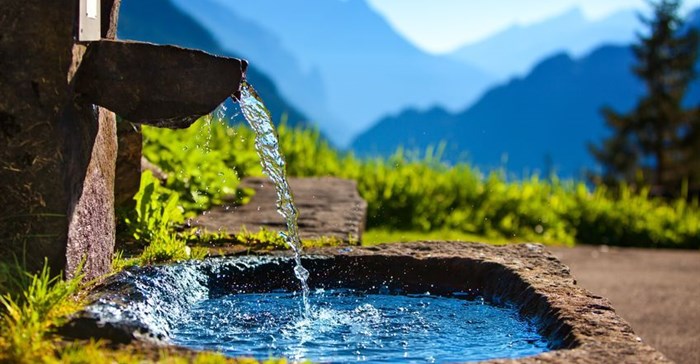
Top stories





Energy & MiningGlencore's Astron Energy gears up with new tanker amidst Sars dispute
Wendell Roelf 10 hours

More news



















Logistics & Transport
Uganda plans new rail link to Tanzania for mineral export boost









Christa Hugo, an environmental health coordinator in the City of Cape Town, warned at a media briefing on Monday, 5 February: "The city has 70 springs. They do not form part of the city's water reticulation system and are not monitored and controlled for drinking water standards."
Only 10 springs so far, in residential areas, had been sampled once a month, and now "newly popular" sites were being added to the list for testing, she said. The list of safe, unsafe, and untested sites was not available at the time of publishing.
Unfortunately, signs warning the public not to drink from the springs, or use the water for cooking purposes, had been removed at various sites by members of the public, she said.
As for grey water, she cautioned that it should "not be kept for longer than 24 hours" and should never be used to wash fruit and vegetables. It also cannot be sterilised.
Health manager Virginia De Azevedo, speaking about the "surge season" in which hot weather helped germs proliferate, said that hand-washing and cooking with potable water was very important to curb the spread of diseases like diarrhea, cholera, typhoid, food poisoning, hepatitis A, and listeria.
"As our region has become more water scarce, we need to adapt. We will never return to a system where we use water as casually as before. We should have been doing this for a decade. Now we're all having to take a crash course," said Jean-Pierre Smith, mayoral committee member for safety, security and social services.
Those who will be spared if - or when - Day Zero comes include informal settlements, and the Cape Town CBD. Regarding those with special needs, the city has been, for one-and-a-half weeks, mapping facilities that take care of people with special needs and all early childhood development centres, according to Smith.
They are also calling on those not yet recorded to announce themselves. Water tanks will deliver water to such facilities. For homes for the aged, volunteer and charity organisations have offered to deliver water, he said.
Informal settlements will not have their communal tap water switched off, but there will be "strict monitoring to make sure that people do not arrive with trucks to load up on water illegally" and then profiteer from that water.
Day Zero, the day residents may have to start queuing for water, was expected to be shifted to the middle of May 2018 due to a decline in agricultural usage, said the city's executive deputy mayor Ian Neilson.
"This is a welcome decline in water usage and gives Cape Town and some of the other municipalities hope but importantly, we need to get our consumption down to 450-million litres per day to prevent the remaining water supplies running out before the arrival of winter rains," he said.
Source: The Times

For more than two decades, I-Net Bridge has been one of South Africa’s preferred electronic providers of innovative solutions, data of the highest calibre, reliable platforms and excellent supporting systems. Our products include workstations, web applications and data feeds packaged with in-depth news and powerful analytical tools empowering clients to make meaningful decisions.
We pride ourselves on our wide variety of in-house skills, encompassing multiple platforms and applications. These skills enable us to not only function as a first class facility, but also design, implement and support all our client needs at a level that confirms I-Net Bridge a leader in its field.
Go to: http://www.inet.co.za